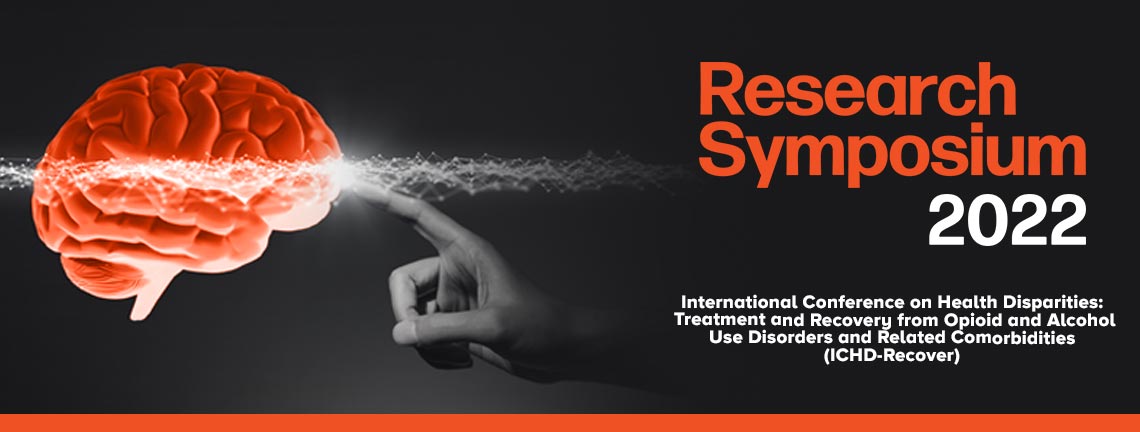
Talks
Presentation Type
Oral Presentation
Discipline Track
Patient Care
Abstract Type
Research/Clinical
Abstract
Background: The misuse of opioids, including prescription opioids, heroin, and fentanyl, has reached epidemic proportions in the US, resulting in more than 68,000 overdose deaths in 2020, and a total of $78.5 billion a year of economic burden. In response to this crisis, the US Department of Health and Human Services (DHHS) released a strategic plan to combat opioid abuse and misuse, recommending a multidisciplinary approach, including the inclusion of pharmacists in the efforts. The aim of this study is to examine pharmacists’ perception of their role in the provision of medication for opioid use disorders (MOUD) in addition to their attitudes towards integrating pharmacists in the provision of MOUD in OUD treatment programs.
Methods: This study followed a descriptive qualitative design. Data were collected from participants (N=20), using in-depth, semi-structured interviews. Data were transcribed and entered into ATLAS.ti©, for coding and analysis. A thematic analysis approach was used to analyze the data.
Results: Through the preliminary thematic analysis, five main themes emerged: perceived roles of pharmacists in the provision of MOUD, perceived barriers to integrating pharmacists into MOUD treatment programs, perceived facilitators of the integration, pharmacists’ desired education/training, and factors influencing the viability of integrating pharmacists into MOUD treatment centers/ programs. Pharmacists expressed immense interest in being part of MOUD treatment programs performing medication therapy management and counseling. Pharmacists listed potential lack of cooperation from providers and clinical logistical issues as barriers to integration and collaboration between pharmacists and providers and integrating pharmacists into smaller settings as facilitators of integration.
Conclusion: The re-evaluation of how MOUD treatment is provided, and who are the health care professionals involved, is an important step to achieving the best patient health outcomes. Bringing pharmacists to the table will require careful study of both what they believe they can do and further analysis of what is preventing them from realizing or utilizing that potential. Pharmacists are eager and well equipped to be part of the provision of MOUD. However, education and training need to be designed to allow for more comprehensive preparation for this critical role.
Recommended Citation
Al Rawwad, Tamara; Kawaleet, Ammar; Aguilera, Lydia; and Sandoval, Adrian, "The Role of Community Pharmacists in the provision of Medication for Opioid Use Disorder Treatment in Rio Grande Valley" (2023). Research Symposium. 31.
https://scholarworks.utrgv.edu/somrs/2022/talks/31
Included in
Health Services Research Commons, Pharmacy Administration, Policy and Regulation Commons
The Role of Community Pharmacists in the provision of Medication for Opioid Use Disorder Treatment in Rio Grande Valley
Background: The misuse of opioids, including prescription opioids, heroin, and fentanyl, has reached epidemic proportions in the US, resulting in more than 68,000 overdose deaths in 2020, and a total of $78.5 billion a year of economic burden. In response to this crisis, the US Department of Health and Human Services (DHHS) released a strategic plan to combat opioid abuse and misuse, recommending a multidisciplinary approach, including the inclusion of pharmacists in the efforts. The aim of this study is to examine pharmacists’ perception of their role in the provision of medication for opioid use disorders (MOUD) in addition to their attitudes towards integrating pharmacists in the provision of MOUD in OUD treatment programs.
Methods: This study followed a descriptive qualitative design. Data were collected from participants (N=20), using in-depth, semi-structured interviews. Data were transcribed and entered into ATLAS.ti©, for coding and analysis. A thematic analysis approach was used to analyze the data.
Results: Through the preliminary thematic analysis, five main themes emerged: perceived roles of pharmacists in the provision of MOUD, perceived barriers to integrating pharmacists into MOUD treatment programs, perceived facilitators of the integration, pharmacists’ desired education/training, and factors influencing the viability of integrating pharmacists into MOUD treatment centers/ programs. Pharmacists expressed immense interest in being part of MOUD treatment programs performing medication therapy management and counseling. Pharmacists listed potential lack of cooperation from providers and clinical logistical issues as barriers to integration and collaboration between pharmacists and providers and integrating pharmacists into smaller settings as facilitators of integration.
Conclusion: The re-evaluation of how MOUD treatment is provided, and who are the health care professionals involved, is an important step to achieving the best patient health outcomes. Bringing pharmacists to the table will require careful study of both what they believe they can do and further analysis of what is preventing them from realizing or utilizing that potential. Pharmacists are eager and well equipped to be part of the provision of MOUD. However, education and training need to be designed to allow for more comprehensive preparation for this critical role.

